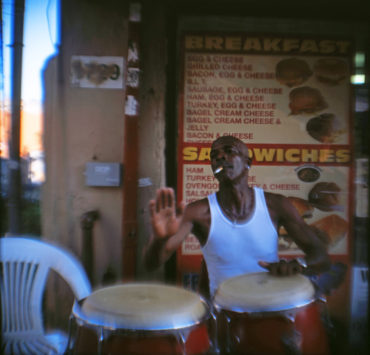
I.
Displacement is not the kind of thing that typically brings song immediately to mind, but the first time I heard “Home,” from The Wiz soundtrack performed by Stephanie Mills, I was filled with comfort and longing. Listening to her sing about the essence of home, the comfort of watching tall grass bend and lean, and raindrops falling with meaning, I discovered what I was missing. It was something I wanted to reach towards and I have been doing now for years.
When I think of home, I think of a place
Where there’s love overflowing
I wish I was home, I wish I was back there
With the things I been knowing.
Art has always given me location, reminded me of what normal is, or at least what my version of normal feels like. Art does not always pay the bills, unfortunately, and it does not keep my big feet warm at night, but it almost always helps with comfort.
Or, I’ve learned that we must look
Inside our hearts to find
A world full of love,
Like yours, like mine
Like home.
I love this about music, that it can seep into your flesh and make your bones shiver from the chill of recognition. That it sinks into you and becomes a physical, spiritual memory that stays with you. It reminds you there is still hope for you to be moved even after you have tried to compartmentalize your emotions and experiences to survive.
For many years now I have been writing versions of my story. During my childhood in New York City in the 1980s and 1990s, I was sometimes homeless with my mentally ill mother, who raised me valiantly as a single mom. This is both true and vague. It does not tell you much about our experience, or how lack converged with need. Decades of writing about it and I still do not feel able to truly convey the shame or the indignities of being so desperately poor and consistently uprooted. The more time passes between the bummy little girl I was and the woman I have become and am becoming, the more I anticipate total and utter healing. I expect to be able to absolve myself of shame.
This is my testimony, the story of how I have been unable to reconcile these truths with the reality that I may always feel wary of rootedness, of physical safety. This is the story of a heart that flutters always toward panic instead of relaxation. This is the story of how I have come to befriend that heart, to give it the comfort other people find in home.
II.
I was texting with a couple of friends about the discovery of a physical Moleskine store on M Street in Georgetown . We started talking about writing and I revealed that I’ve been keeping a journal since 1992. What had been a continuation of light banter quickly became slightly heavy. “I love my secrets too much to ever commit so much to paper,” one of them said.
Texting is good for a lot of things, but it is no place to explain that writing, for me, is where I am from. It is the safe house I live in.
But it is also a harbor. A safe harbor, where I can always go to retreat, to reminisce, to reflect. Writing is the mobile safe space that anchors me in the world. No matter what, I always return to it and it reminds me of who I am and who I may always be.
The stress of poverty, the uncertainty of where help will come from—if, as my mother’s faith and later, mine, would suggest, it was coming—makes safe shelter feel like a luxury. Something not everyone is entitled to. Like I was not worthy of stability, like we did not deserve our own place. This may be why my heart leans so sharply towards fairness and justice, especially for underdogs. I know what it is like to be moved into a zone of unworthiness.
Maybe there’s a chance for me to go back
Now that I have some direction
That song from The Wiz resonated with me because Stephanie Mills starts off talking about home like a place, a physical location outside of ourselves, a place where she wants to be—“back there with the things I been knowing.” What I didn’t realize until later, after years of mandatory, accidental then optional and voluntary wandering from place to place and city to city, studio apartment, closet apartment to giant 1-bedroom to small, quaint house to one room in a beautiful giant castle of a home is what she arrives at later. That home is within us. That we carry it with us wherever we go.
It doesn’t solve my problem, but it is a nice sentiment.
My problem, if you can even call it that, is that I don’t have a frame of reference. Even that doesn’t seem completely accurate but it was the immortal James Baldwin who said that we write to find out what we think. I would add that I write to find out who I am, what I am, what it is that I think I know.
When I search my memory for a time and space in which I felt completely at ease, utterly loved, comfortable and surrounded by serenity, I cannot conjure a single moment or geographical location. When people talk about home to me, a single woman, it is as if they are talking about marital love. They are talking about a space I have always yearned for but never found. They might as well be talking about their common experience in outer space.
But I think I know because of how I feel when I write, or when I run, or when I’m reading. These are things that keep my nervous heart from beating out of my chest when I’m afraid and anxious and I have insomnia. Or when I’m making myself dinner, and chopping garlic just so, and cutting up onions or slicing mushrooms. Or when I hear a song that reaffirms God’s love for me, or reminds me that my love really had chosen me just for me and we would be together forever until we weren’t. Home to me is something I still don’t quite understand except when I feel close to it.
I have found a home in movement, in change. This is the only way I have been able to make peace with my restlessness. I said recently to someone who asked how I handled working in an environment that was always in crisis mode that I am most comfortable in high-intensity, ever-changing environments because I grew up negotiating all of that.
I do not ever write about home without writing about homelessness. I cannot write about home or homelessness without writing about my mother. If home is about a place where love overflows, then my mother was the house that taught me what love can look like, what it can build, what want of it and lack of it can destroy.
III.
Whenever I write about my mother Marguerite, I forget to say that she had a gap in her teeth about as wide as a small pinky and that she danced with her shoulders and that she believed that I was a miracle, sent by God, and she often told me so. These are the little triumphs of a home, the spot on the creaky, spotless wooden floor that only you know to step into when you deliberately want to make noise or step around so you don’t wake your sleeping love.
Instead, I usually start awkwardly, trying to explain how she created the nervous writer who is narrating here—the equivalent of giving someone a tour of a house by entering the back door and insisting that you start in the bathroom on the second floor instead of in the living room.
What kept me from knowing home is that I don’t think that my mother ever knew the concept, or lived in it. She was bipolar—she had surges of anger and manic depression, great highs and suicidal lows. She also had borderline personality disorder—she was a narcissist. She believed that we were essentially the same person. Our personalities were what psychologists call enmeshed in her mind. This manifested in her saying things like, “You’re a part of me. I can’t live without you.”
It is the kind of thing and condition that makes a person feel necessary. Needed. Wanted.
So you could understand how I began to equate this kind of attention with love. With comfort.
This is what Edward P. Jones, who moved 18 times in 18 years and grew up in the same kind of conditions says about home: “When you move 18 times in 18 years, you learn that the world is forever shifting; you can’t be certain of anything. But if you’re in your home, your apartment, and the rent is paid up, and there’s no reason for the landlord to knock on your door, then you’re okay. But once you leave your apartment, once you leave your home, then you can’t predict anything. It’s not your world; you can’t control it.”
The world, my home, was always shifting, like my mother. Like my residence, my address, my phone numbers.
I have lived in several cities since I was a little girl. I grew up a nomad, trying to embrace the constant shifts, the changes beyond my control. I have always been resentful of the needs that stem from my humanity, the ones that require me to know what is going to happen next, where all of the things I been knowing, as Stephanie Mills put it, are located in space, when I can touch them, how I can keep them around me to anchor me when I need it most.
Marguerite is now in heaven with my brother Jose, my namesake—they have made their home in the greatest place imaginable while I sit here missing them and wondering what kind of incredible relief it must be to have a final, eternal respite from finding the perfect resting place.
It has taken more than 30 years, longer than I would have liked, and maybe not enough time since the idea that I have arrived at a place, a destination at which everyone started from, and maybe has left, is still one that is settling, much like I am. But now I live in a city that feels like home. It is not as familiar as the cities in which I grew up, where I have tried to nest. But combined with the writing, with the running, with the daydreaming, it is close enough.
Image Credits: Philippe Put

Joshunda Sanders is a writer and journalist who has learned to make home wherever she can. She has written for Bitch, Salon, Gawker, BuzzFeed, Huizache, the Bellevue Literary Review and many other publications. Her book, How Racism and Sexism Killed Traditional Media: Why The Future of Journalism Depends on Women and People of Color was published by Praeger/ABC-CLIO in August 2015. She lives in Washington D.C.







